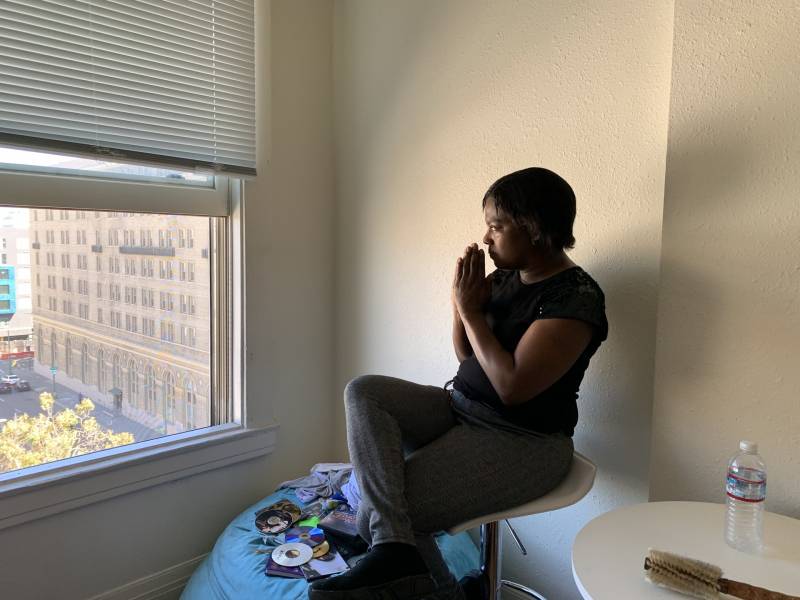A motel, a mountain lodge and a village of tiny homes are just some of the buildings that will soon become permanent homes to hundreds of formerly homeless people across California.
The projects are among 10 sites the state selected on Sept. 16 for its first round of funding, totaling $79.5 million. Officials in two of the counties receiving funds say the projects will functionally end homelessness in their jurisdictions. In another, it will be the county’s first homeless shelter.
All of the housing is part of Project Homekey, which draws from $600 million in mostly federal CARES Act funds to help California cities and counties convert hotels, motels, apartments and other buildings into permanent housing for formerly homeless people.
KQED’s new podcast SOLD OUT: Rethinking Housing in America explains how this program, especially during the COVID-19 pandemic, can be like giving someone a prescription for better health. Listen to the first episode, “Hotel Corona,” to hear how.
Read a transcript of the episode.

